Meet the Sargasso Sea Commissioners
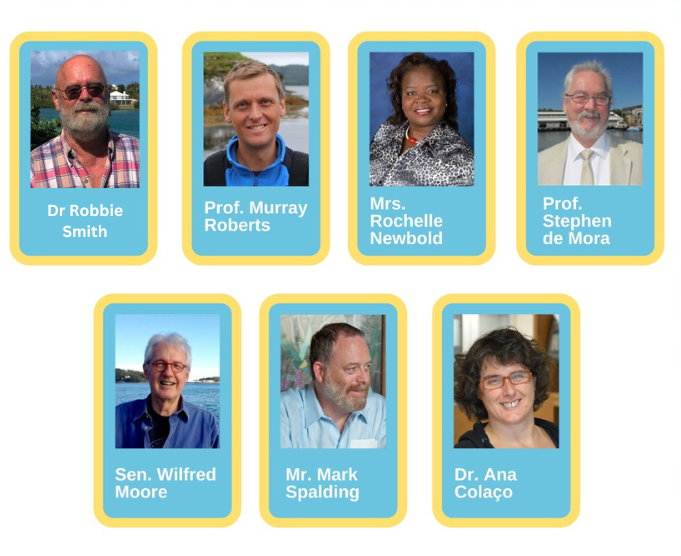
The Sargasso Sea Commission is a unique institution, operating as a stand-alone legal entity established by Bermudian and US law. It is appointed by the Government of Bermuda with the support of the Governmental Signatories to the Hamilton Declaration. Its formal role is to act as the Steward of this iconic high seas ecosystem and to keep its health, productivity, and resilience under review, as well as to develop safeguard measures for its conservation. It is also innovative as Commissioners are appointed primarily according to their scientific expertise and suitability, and serve in their personal capacity rather than being representatives of the Signatory Governments. The Sargasso Sea Commission has no management authority, but it can issue proposals for consideration by the Signatory governments. The Commission meets on a regular basis with the Secretariat, and jointly with the Signatories in order to collaborate.
DR. ROBBIE SMITH
Curator of the Natural History Museum
Bermuda Aquarium, Museum & Zoo, Bermuda Dr Robbie Smith, Curator of the Bermuda Natural History Museum at BAMZ and adjunct faculty at the Bermuda Institute of Ocean Sciences, will bring a wealth of ecological expertise to the Commission. Dr Smith has been involved in various projects locally and internationally relevant to the Sargasso Sea, including assessing the status of reef fish populations within protected areas in Bermuda, reef recovery in Florida, and deep ocean biological research in Bermuda with the Nekton Mission. Furthermore, Dr Smith is one of the few scientists to have studied the changing community of Sargassum in Bermuda.
Dr Robbie Smith, Curator of the Bermuda Natural History Museum at BAMZ and adjunct faculty at the Bermuda Institute of Ocean Sciences, will bring a wealth of ecological expertise to the Commission. Dr Smith has been involved in various projects locally and internationally relevant to the Sargasso Sea, including assessing the status of reef fish populations within protected areas in Bermuda, reef recovery in Florida, and deep ocean biological research in Bermuda with the Nekton Mission. Furthermore, Dr Smith is one of the few scientists to have studied the changing community of Sargassum in Bermuda.
DR. ANA COLAÇO
Deep-sea ecologist, University of Azores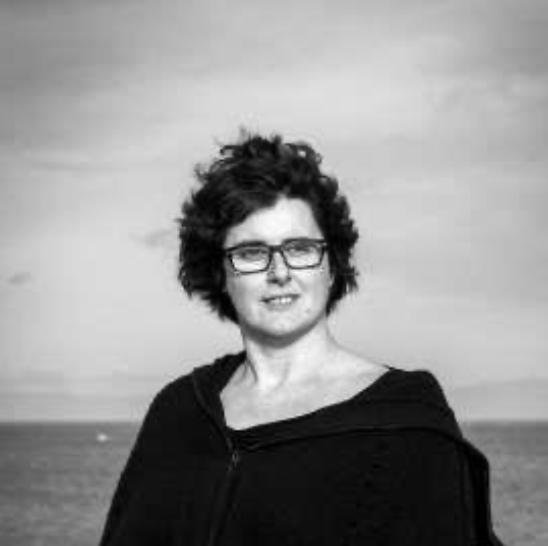 She has acted as chief scientist on numerous oceanographic cruises, and managed many scientific projects related to hydrothermal vent ecosystems, trophic ecology of deep-sea systems, benthic ecology, biodiversity, and conservation. She is also experienced with international cooperation at the European level and overseas. She is involved as deep-sea expert with the International Council for the Exploitation of the Sea (ICES), the International Seabed Authority (ISA), and the Deep Ocean Stewardship Initiative (DOSI), and has contributed to the second UN World Ocean Assessment. She has also contributed to numerous other publications and education and outreach initiatives related to deep sea conservation. She is passionate about the ocean and about her teenage twins, who with their youthful outlook constantly inspire her to see the world in new ways.
She has acted as chief scientist on numerous oceanographic cruises, and managed many scientific projects related to hydrothermal vent ecosystems, trophic ecology of deep-sea systems, benthic ecology, biodiversity, and conservation. She is also experienced with international cooperation at the European level and overseas. She is involved as deep-sea expert with the International Council for the Exploitation of the Sea (ICES), the International Seabed Authority (ISA), and the Deep Ocean Stewardship Initiative (DOSI), and has contributed to the second UN World Ocean Assessment. She has also contributed to numerous other publications and education and outreach initiatives related to deep sea conservation. She is passionate about the ocean and about her teenage twins, who with their youthful outlook constantly inspire her to see the world in new ways.
PROFESSOR STEPHEN DE MORA
Retired, Environmental Consultant. Former Chief Executive of the Plymouth Marine Laboratory and PML Applications Ltd.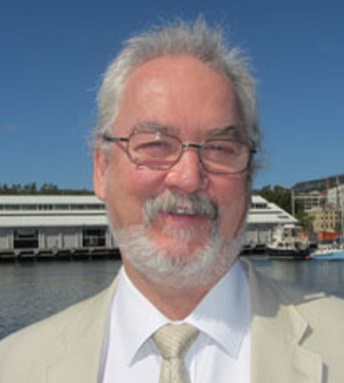 Professor Stephen de Mora recently retired as the Chief Executive of the Plymouth Marine Laboratory and PML Applications Ltd. He remains as an Emeritus Fellow, as well as being an Honorary Visiting Professor in Biosciences at The University of Exeter. Stephen has broad experience in environmental research and senior management, having had a career in academia, international organisations and private business. Educated in chemistry and oceanography, his areas of expertise include environmental analytical chemistry, marine pollution monitoring & assessment, chemical oceanography, biogeochemistry, and polar science.
Professor Stephen de Mora recently retired as the Chief Executive of the Plymouth Marine Laboratory and PML Applications Ltd. He remains as an Emeritus Fellow, as well as being an Honorary Visiting Professor in Biosciences at The University of Exeter. Stephen has broad experience in environmental research and senior management, having had a career in academia, international organisations and private business. Educated in chemistry and oceanography, his areas of expertise include environmental analytical chemistry, marine pollution monitoring & assessment, chemical oceanography, biogeochemistry, and polar science.He served as Head of the Oceanography Department (University of Quebec at Rimouski, Canada) and Laboratory Head (International Atomic Energy Agency, Monaco) during which time he gained familiarity with International Project Management, having collaborated with UNDP, UNEP, FAO, and UNESCO-IOC, as well as GEF projects in the Black, Caspian and Red Seas, and the Western Indian Ocean.
SEN. WILFRED MOORE
Senator (retired), Government of Canada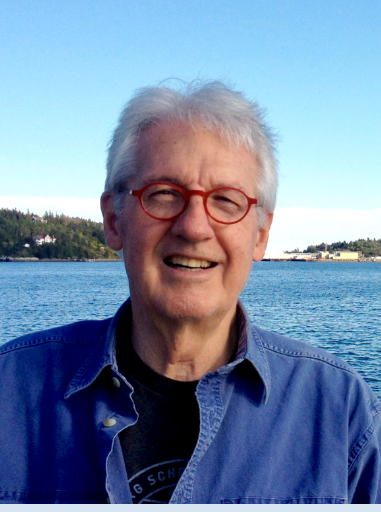
MRS. ROCHELLE W. NEWBOLD
Special Advisor Climate Change & Environmental Matters, Office of the Prime Minister, Nassau, The Bahamas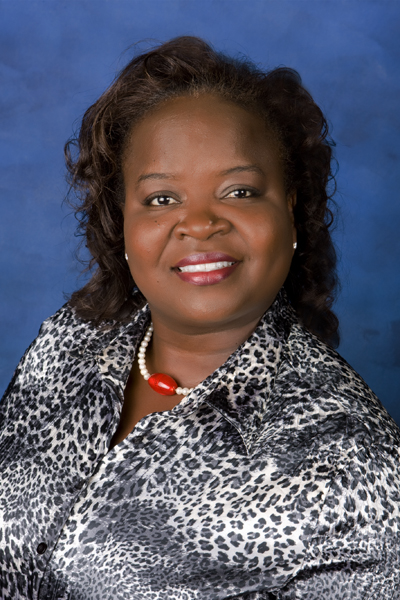 Mrs. Newbold is serious about the environment and sustainable development. For more than 19 years she has worked in the environmental field in The Bahamas endeavoring to ensure that balance between environmental conservation and development is given equal weight in both public and private sector projects. Sustainable development is an important objective for small island states like The Bahamas and Mrs. Newbold continues to provide the necessary support and experience to her country as it seeks to address both global and national environmental concerns.
Mrs. Newbold is serious about the environment and sustainable development. For more than 19 years she has worked in the environmental field in The Bahamas endeavoring to ensure that balance between environmental conservation and development is given equal weight in both public and private sector projects. Sustainable development is an important objective for small island states like The Bahamas and Mrs. Newbold continues to provide the necessary support and experience to her country as it seeks to address both global and national environmental concerns.
Mrs. Newbold has represented her country at numerous United Nations conferences and international and regional environmental conferences. She has also been responsible for and has contributed to the development of various national environmental regulations, policies, projects, handbooks and plans. Mrs. Newbold has been involved with research on coral spawning, propagations, sponges and chemical benefits and reef health and assessments. She believes that public education is critical to enacting responsible change and public-private sector partnerships are key to ensuring success. This was key when she managed a private development in one of the oldest marine protected areas in the world. The involvement of local communities and the transfer of benefits is important, but a balance must be achieved to ensure that the integrity of the environment is not sacrificed, and this balance is the key to any successful project implementation. In 2016 Mrs. Newbold was instrumental in aiding her country to declare 2.5 million hectares of protected areas in The Bahamas.
She is a member of the Charted Institute of Water & Environmental Management (CIWEM) and the Charted Institute of Scientist (CSI) with the United Kingdom Science Council and holds a Master of Environmental Management degree from Duke University in Coastal Environmental Management and a bachelor's degree in Marine Biology from the University of Wilmington North Carolina. She presently serves as Special Advisor on Climate Change & Environmental Matters at the Office of the Prime Minister, Nassau, The Bahamas.
PROFESSOR MURRAY ROBERTS
Professor of Applied Marine Biology & Ecology in the School of Geosciences at the University of Edinburgh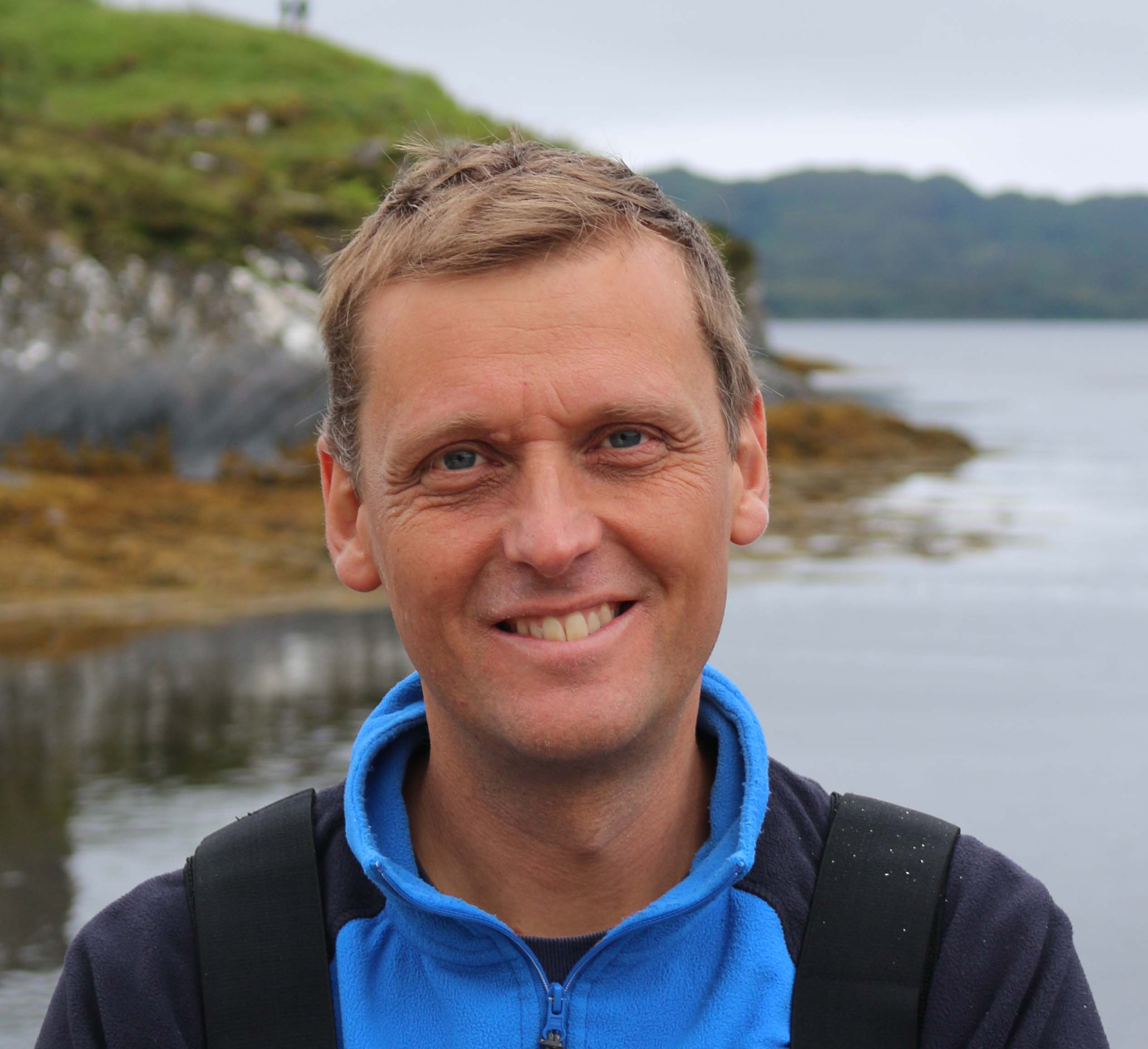 Dr Murray Roberts is a specialist in cold water corals. He runs two international research programmes, ATLAS, and iAtlantic, which collect data on the Sargasso Sea. He has participated participated in offshore research expeditions off Norway, Scotland, Ireland, Western Africa and the Southeast USA. He is also the author of the most cited paper on cold-water coral biology and geology in 2006 (Science 312: 543-547) and the only textbook on cold-water corals (Cambridge University Press, 2009). He also has experience working at the science/policy interface at an international level, acting as a consultant for the Convention on Biological Diversity to produce an updated synthesis on the impacts of ocean acidification and to draft the 'Voluntary specific workplan on biodiversity in cold-water areas within the jurisdictional scope of the Convention'.
Dr Murray Roberts is a specialist in cold water corals. He runs two international research programmes, ATLAS, and iAtlantic, which collect data on the Sargasso Sea. He has participated participated in offshore research expeditions off Norway, Scotland, Ireland, Western Africa and the Southeast USA. He is also the author of the most cited paper on cold-water coral biology and geology in 2006 (Science 312: 543-547) and the only textbook on cold-water corals (Cambridge University Press, 2009). He also has experience working at the science/policy interface at an international level, acting as a consultant for the Convention on Biological Diversity to produce an updated synthesis on the impacts of ocean acidification and to draft the 'Voluntary specific workplan on biodiversity in cold-water areas within the jurisdictional scope of the Convention'.
MR. MARK J. SPALDING
President of the Ocean Foundation
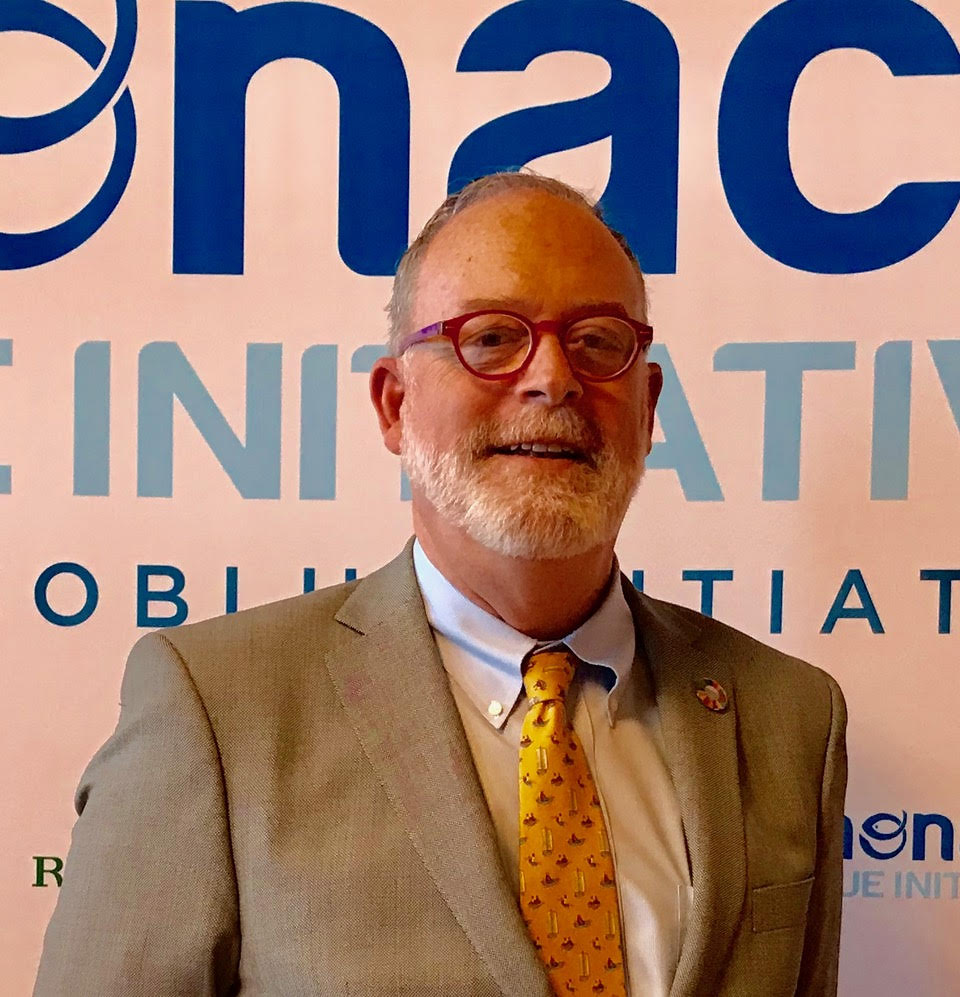 Mark J. Spalding, President of The Ocean Foundation is a member of the Ocean Studies Board of the National Academies of Sciences, Engineering, and Medicine (USA). Mark is a Senior Fellow at the Center for the Blue Economy at the Middlebury Institute of International Studies. And, he is an Advisor to the High Level Panel for a Sustainable Ocean Economy. In addition, he serves as the advisor to the Rockefeller Ocean Strategy (an unprecedented ocean-centric investment fund) and is a member of the Pool of Experts for the UN World Ocean Assessment. He designed the first-ever blue carbon offset program, SeaGrass Grow. Mark is an expert on international environmental policy and law, ocean policy and law, and coastal and marine philanthropy.
Mark J. Spalding, President of The Ocean Foundation is a member of the Ocean Studies Board of the National Academies of Sciences, Engineering, and Medicine (USA). Mark is a Senior Fellow at the Center for the Blue Economy at the Middlebury Institute of International Studies. And, he is an Advisor to the High Level Panel for a Sustainable Ocean Economy. In addition, he serves as the advisor to the Rockefeller Ocean Strategy (an unprecedented ocean-centric investment fund) and is a member of the Pool of Experts for the UN World Ocean Assessment. He designed the first-ever blue carbon offset program, SeaGrass Grow. Mark is an expert on international environmental policy and law, ocean policy and law, and coastal and marine philanthropy.
Emeritus Commissioners
DR. BILLY D. CAUSEY
Senior Policy Advisor (retired)
NOAA's Office of National Marine Sanctuaries
National Marine Protected Areas Center
National Oceanic and Atmospheric Administration, US.Dr. Billy Causey served as the Southeast Regional Director for the National Oceanic and Atmospheric Administration’s (NOAA) Office of National Marine Sanctuaries from 2006-2019. He has managed Sanctuaries in the Florida Keys since 1983, when he became the Manager of the Looe Key Sanctuary. He served as the Superintendent of the 2900 snm Florida Keys National Marine Sanctuary from August 1991 to September 2, 2006. Dr. Causey was the lead NOAA official in the development of the management plan for the Keys Sanctuary. He was responsible for establishing the first comprehensive marine zoning plan for the United States. Dr. Causey’s academic interests are in coral reef ecology, coral reef fishes, sustainable management, regional connectivity, ecosystem-based management, marine zoning, climate change and marine policy. He has observed and recorded the impacts of climate change on the coral reef ecosystem since 1978. Dr. Causey was among the first coral reef managers to link coral bleaching with elevated sea surface temperatures and to correlate the secondary impacts of coral diseases to the stressors created by the conditions caused by increased water temperatures and other sources of environmental degradation. He has worked on the South Florida Ecosystem Restoration Project since 1993 and has been active with numerous initiatives to establish MPA networks around the region.


